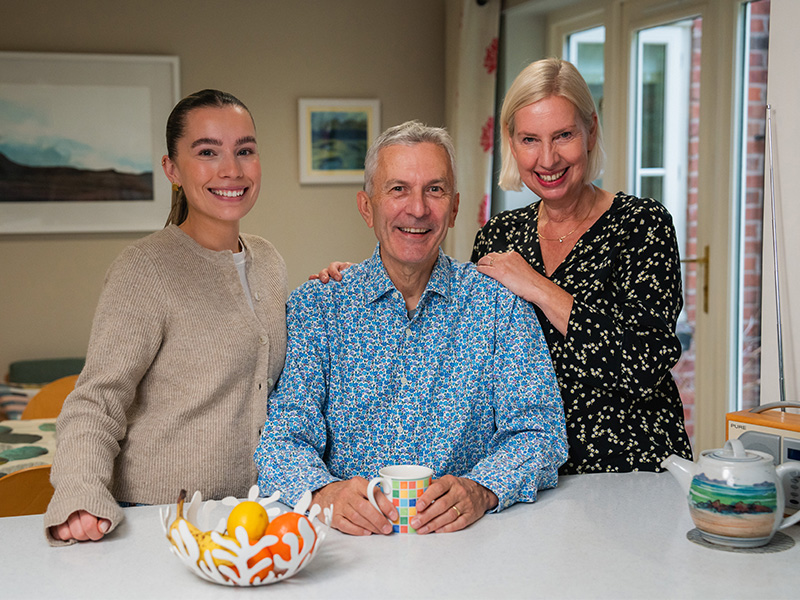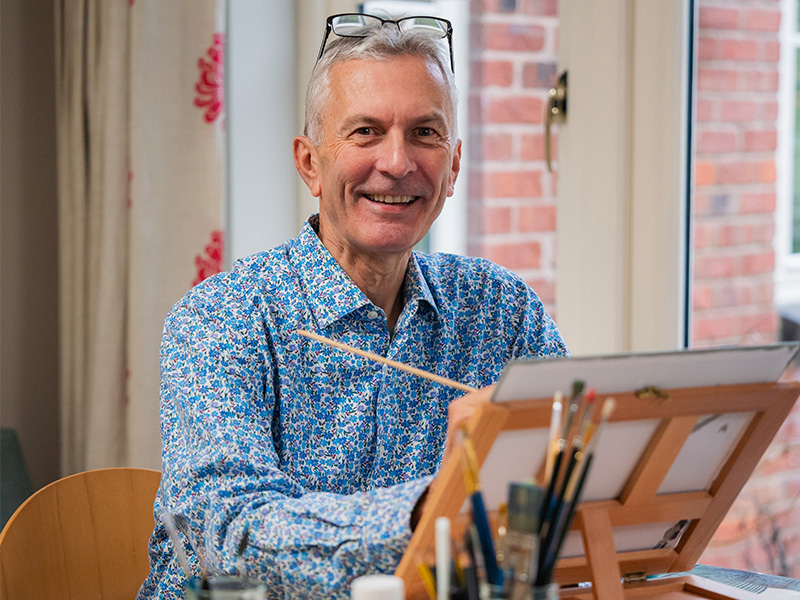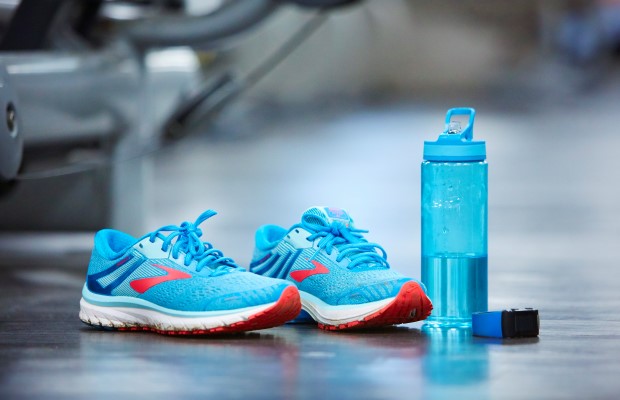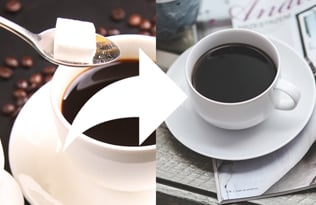“Seven months after I retired from my job as a surgeon, I had a heart attack. It was 29 July 2021, a glorious summer’s day.
I was going fly fishing with my friend Rob – that was something I’d planned to do more of in retirement – and we met at Rutland Water. We drove down to the reservoir and started to get the fishing tackle ready.
But then I started to feel as if I had indigestion. I felt a bit dizzy and not very well. When I started getting central chest pain, I realised it was something serious.
I looked at Rob and said, ‘we’re not fishing today, I think I’m having a heart attack and I need to go to hospital.’
My world crashed around me
In hospital the consultant came and said, ‘you’ve had a heart attack, and we need to transport you to Papworth Hospital for treatment.’
I was shocked, I couldn’t believe it because I had no history of heart disease, and my parents were both fit and well in their 90s.
I was 63, I’d just retired, and I had so many plans. I was going to do some fishing, learn to play the piano and do some art courses. It all looked brilliant to me. And then my whole world crashed around me.
That morning, I’d woken up early and taken my wife Linzi a cup of tea, said goodbye and I love you. I was so glad I had, because now I thought I might not see her and our kids again.
Want to get fit and healthy?
Sign up to our fortnightly Heart Matters newsletter to receive healthy recipes, new activity ideas, and expert tips for managing your health. Joining is free and takes 2 minutes.
I’d like to sign-up
Double trouble for my health
Tests found I had a complete blockage in a coronary arteries, the vessels supplying the heart muscle with blood. I was treated with a stent to open up the blocked artery, and the doctor said it had restored a good blood supply to my heart.
By the time I was back on a ward, I thought, I’m lucky to be alive, and I felt so relieved.
But while I was in hospital, they tested my blood sugar and found it was high. A diabetic specialist nurse came to see me and told me I had type 2 diabetes.
That was a further shock. But when I had time to reflect, I realised I’d been losing weight and was going to the toilet more often, which can be symptoms of diabetes.
Linzi, who is also a doctor, had wanted me to see my GP, but I was busy, and I didn’t get checked.

Philip with his wife Linzi and their daughter Catriona
I do look back and think a lot of my lifestyle was not very healthy. I sometimes ate badly and neglected myself.
My job was mainly doing head and neck cancer surgeries, which is a more stressful branch of my specialty. I would be on the ward at 7.30am. I would then go to the canteen and have a big fried breakfast to get me through the day.
I used to do long operations that could take 10 to 12 hours. I would come home and raid the fridge for anything that was in there.
But because I’ve always been slim, I didn’t realise the potential for slowly developing diabetes, or feel at risk.
Tears turned to thankfulness
On the first night in hospital, I felt tearful in the middle of the night, because I could not believe what had happened.
Thankfully, I was able to go home after a couple of days. I got cards and messages from friends, family and from doctors I’d trained, and that was really life-affirming. It helped me get through my recovery at home.
At first it was a struggle, and I couldn’t walk far at all. I did several sessions at a cardiac rehab class at my local hospital and later found a class in a local leisure centre, which was excellent.
Twice weekly we did an hour of gym, steps and weights. I really enjoyed it, and the classes were an opportunity to have a chat with other people who’d had heart problems.
Exercising made a big difference to me. Slowly but surely my energy and fitness dramatically recovered. Linzi and I have been to the Yorkshire Dales, and I’ve walked up all the 3 peaks. One of them is a 9-mile round trip.
I couldn’t even climb the stairs when I first came home from hospital, so it’s a massive improvement.
I was put on a medicine for my diabetes, metformin, but I didn’t get on with it. So I decided to tackle my blood sugar by improving my diet.
Although not particularly overweight, I lost 2 stone, so I’m now the weight I was at university. And my blood sugar level came back to the normal range.
I’m enjoying my retirement now
After a heart attack it really does play on your mind, and I’ve struggled a little bit with worry about my heart. I’m sure it’s been just as bad for my wife in a different way.
I had some counselling, and I found it was most helpful talking to friends, who often put things in perspective.
It’s important to do things you enjoy. I’ve been back fly fishing with Rob. I’m learning to play the piano and have been painting and drawing.
I regularly meet my friends who have also retired, and I’ve met many new people in the art classes I’ve started. I feel I’m now in a position to enjoy my retirement as planned.

Get your health checked
I do look back and think why didn’t I get checked? I’m a doctor, and it was shocking to realise I didn’t make the time for it.
If my high blood sugar levels had been diagnosed 5 years earlier, I might not have become diabetic.
I look back and think, why didn't I get checked?
From your 40s onwards you can get your blood pressure, your cholesterol and your blood sugar checked. Since my heart attack I’ve been encouraging my friends, family and colleagues to do so.
One family member found he has high cholesterol, and a former colleague and friend found he has type 2 diabetes. So, if you get checked, you might find something crucial.”
How do you get an NHS health check?
In England, if you’re aged 40 to 74 without certain pre-existing conditions, you are likely to be invited to a free checkup of your overall health every 5 years.
The NHS health check includes measuring your height and weight, a blood pressure check, and a cholesterol test. If you have a family history of type 2 diabetes or symptoms you will be offered a blood sugar test.
You’ll be given a score which describes your risk of developing heart disease, stroke or type 2 diabetes over the next 10 years.
If you want to reduce your risk, you may be referred to local services that can support you. These include stop smoking or physical activity services, or the NHS Diabetes Prevention Programme known as Healthier You.
There are different approaches in Scotland, Northern Ireland and Wales – check online or via your GP surgery.
What to read next...









